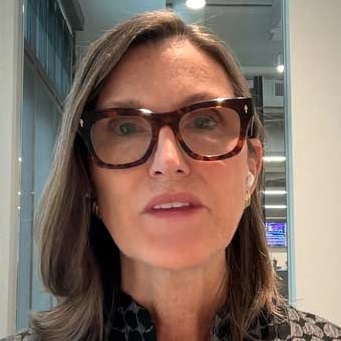
I bought my first house almost six years ago, after years of saving. If you had offered me a 25% contribution towards the deposit I would have jumped at the chance. I feel a little gutted to have missed out on the bonus from the Government that a Lifetime Isa would have offered, but I also appreciate that in the intervening years I have enjoyed the house price growth which is the very thing keeping the next wave of buyers from getting a foot on the ladder.
My view of the Lifetime Isa is simple: savers who don’t take advantage are looking a gift horse in the mouth. I feel the same way about these lucrative savings accounts as I do about workplace pensions: it’s free money, why wouldn’t you take it?
But, as someone who writes about finance for a living, it’s easy to lose perspective and forget how complex savings and investments can be to an outsider.
For the uninitiated, the LISA allows you to save or invest up to £4,000 a year tax-free. Crucially, the government will top your savings up by 25% when you come to buy your first home. Anyone aged 18 to 39 can open one.
Help to Buy Helps First-Time Buyers
The launch of the LISA came less than 18 months after the inception of the Help to Buy Isa – a dedicated saving vehicle for those saving for their first house deposit, which offered the same 25% bonus but a smaller annual allowance of £3,000.
Alex Jordan, 27, from Kent, used a Help to Buy Isa to purchase her first home last year. She says: “The scheme really helped me and I recommend it to anyone I speak to who is saving for a deposit, but I didn’t even realise the scheme was closing.
“When it comes to the Government, I’m more surprised when they make good on their promises to help young people than when I hear they’ve scrapped another scheme designed to help them.”
While existing Help to Buy ISA accountholders can continue to save and to benefit from the Government bonus, the accounts will be closed to new savers from December 2019. And now, less than 18 months after its launch, there are rumours the Lifetime Isa could also be scrapped.
Reaction has been mixed, with uproar from the industry that the Government is doing away with a product that provides a much-needed helping hand for aspiring homebuyers. But others argue that savers are already too confused and disenfranchised to even pay much attention to the latest development.
What's the Point of a LISA?
Edmund Greaves, 29, says: “I don’t really understand the point of the LISA when a Help to Buy ISA does the same thing and I have a workplace pension for long-term savings.
“If I were saving for a house deposit, I’d be reluctant to invest in stocks and shares because the risk of your money falling in value is too high – we’re constantly told you should only invest if you’re willing to tie your money up for at least 10 years, but most people want to save for a house deposit much quicker than that.”
A recent report by the Treasury select committee criticised the LISA as being unpopular, complex and having “perverse incentives”.
Claudia Turner, 22, says: “I like the idea of getting a contribution from the Government but the idea that I’ll be penalised if I need to access the money before I want to buy a house really puts me off.”
Certainly, complexity and confusion are thought to be behind the low take-up of the product. Figures from HMRC reveal just 166,000 Lifetime Isa accounts were opened in its first year of existence, with a total of £517 million put into them – an average of £3,114 for each account.
Will Mead, a 23-year-old from Essex, is one of the savers who has opened a LISA. He says: “I only opened it because my girlfriend said it was a good idea, but I don’t really understand what the benefits are.”
ISA Products Multiply
When ISAs were first launched in 1999 they were relatively simple. Today there are at least seven different variations of the tax-free savings account, not including the latest proposals for a potential Care ISA or Pension ISA.
Tom Selby, senior analyst at AJ Bell, says: “Nobody is claiming the LISA is perfect but ditching it now would make little sense and risk leaving hundreds of thousands of people who have already invested stuck in limbo.”
But, while some industry insiders are outraged at the proposed scrapping of the LISA, many young savers are either put off of the scheme because of confusion or lack of trust, or are unaware it even exists.
Laura Nineham, a 30-year-old digital content developer from Portsmouth, says: “I don’t really trust any of these products. I’d be more inclined to just put my money in a normal savings account but interest rates are so low there is no incentive to save.”
The Government seems to want to steer savers away from pensions and towards ISAs for their retirement savings, but lumping retirement and home ownership aspirations together into one product is clumsy at best. The Help to Buy Isa was easy for people to understand and immediately popular, and scrapping it in favour of a more complicated alternative seems a misguided decision.
Using ISA as a catch-all term for a plethora of savings vehicles is starting to muddy the waters and when that happens the most likely outcome is the opposite of that intended: people are simply put off from saving rather than encouraged.




























